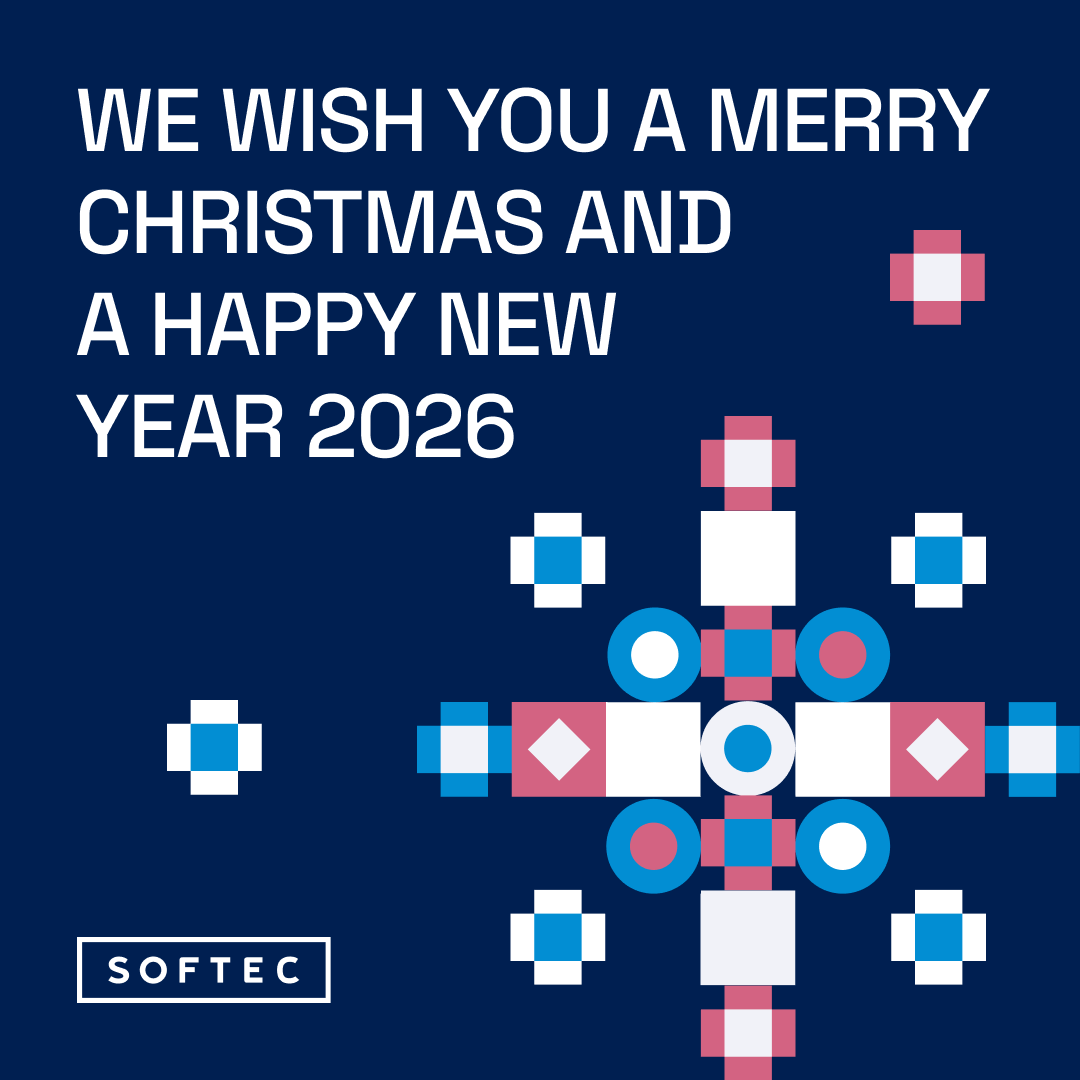
News12. December 2025
PF 2026
WE WISH YOU A MERRY CHRISTMAS AND A HAPPY NEW YEAR 2026
Softecon04 Mar 2019

Marek Havrda
What trends do we expect to see in the use of AI? The arrival of AI is starting a revolution that companies and countries will have to adapt to sooner or later if they don't want to be left behind. This talk will delve into the potential impacts of AI on the world around us, touch on the issues being addressed in relation to ethics and regulation, and outline the areas that the business world should focus on to benefit from modern technology.
Ján Lunter
Over the past five years, biometrics has changed enormously thanks to artificial intelligence methods. We will show how new, radically better solutions to old problems have emerged, what new challenges in biometrics artificial intelligence has brought and how it can gradually solve them. The advent of artificial intelligence in human recognition has been very rapid relative to other industries; the revolutionary change that has already taken place in biometrics is only just beginning in other fields. Together, we will look at the main factors influencing the speed of application of AI in each industry. Is your industry "at risk" or do you still have plenty of time before AI replaces you?
Juraj Rosa
How to get started with artificial intelligence in business? Going from initial idea to successful implementation is no cakewalk. Let's take a look together at the steps any company must go through if it wants to meaningfully leverage the potential of AI in its business. How to set expectations, how to evangelize the need for change in your organization, or what areas and solutions to focus on when you're serious about AI but haven't yet mustered the courage? Let's do it!
Filip Vítek
Many industries in Slovakia do not take the threat of artificial intelligence replacing their jobs seriously. They think that we are "behind" as a country and that it will take longer for automation processes to break through. So we are happy to welcome the arrival of new manufacturing plants, for which there is slowly no one left to work today. Data analysts, since they are working with artificial intelligence (or at least telling themselves they are), feel that they are on the right side of the river. After all, data will be the "new oil" of business, so professions working with it will be spared, right? But the reality is much harsher, and some of the analytics roles will be the first to fall victim to robotization. How not to wake up one day as useless? Is it possible to prepare for this trend? In what ways can we improve? Which skills will be your ticket to the Noah's Ark of analytics?
Andrej Žlnka, Martin Pálka, Dušan Slimák
Artificial intelligence is the number one topic today. It's not new, this buzzword has been with us for almost 80 years. But something has changed: computers have learned to pretend to be human. This ability is measured by the so-called Turing test, and for a few years now, machines have been passing it successfully. One such example is virtual assistants and chatbots, which are able to answer our questions about the weather in the morning or order something for us without the other party realising that they have not spoken to a human.
How to harness this potential of AI in the banking sector? Can we digitise the entire process from client acquisition to product sales? Together, we will look at how AI can help us in sales and service activities.
Marek Havrda, Ján Lunter, Filip Vítek, Jiří Dobeš, Ondrej Svačina
The arrival of artificial intelligence brings entirely new opportunities, but also entirely new risks. How much can we trust the results provided by artificial intelligence? How can we ensure privacy protection while harnessing the business potential of new technologies? Will artificial intelligence limit human autonomy too much? When is it ethical to use AI for 'nudging'? If we delegate decisions to AI, how do we provide an audit trail? What are the technical solutions to these risks? To what extent can AI itself help us address the risks and negative impacts that its implementation brings?
Ondrej Svačina
When deciding how best to allocate limited funding for the repair and reconstruction of our roads, it is very important to know their current condition. Road surface defects, such as cracks or potholes, are a straightforward way of expressing their condition. Last year at this conference, we talked about photographic equipment and the idea of analysing the images produced using artificial intelligence methods. This year, we will show how neural networks trained by us can detect faults themselves and categorize them for further processing. The presentation will include the results of success tests.
Jiří Dobeš
An innovative Czech bank has challenged artificial intelligence to a "duel" with the bank's experts. The aim was to improve the behavioural model of the loan applicant, in particular to increase the likelihood of accepting a consumer loan offered by the bank. Based on the consumer's profile and behaviour, an artificial intelligence model was thus created whose predictive power was almost double that of the model used by the bank. What was the journey from the vision to the final model in a production environment that enabled the bank to offer a tailored product to customers with a high acceptance rate?
David Tvrdoň, Ondrej Podstupka
It took us at SME an awfully long time to let go of picking the lowest growing fruits and primitivism when creating new digital projects. And that's true for successful global digital products, where the same is true - people don't like complex technology, so the simpler the better and the bigger the impact. It doesn't apply to absolutely everyone. It's easy to illustrate with a few examples. The whole subscription economy is a beautiful example.
News

News12. December 2025
WE WISH YOU A MERRY CHRISTMAS AND A HAPPY NEW YEAR 2026

Softecon12. December 2025
For 22 years, SOFTECON has been the trusted platform where business meets technology. Last year’s edition welcomed more than 300 leaders and experts from top companies across the region.
The next conference will take place on 21 May 2026 at Divadlo Aréna in Bratislava. Expect real-world stories from leading Central European companies advancing their business through technology and artificial intelligence.
Please reserve the date. More details will follow soon.

News1. October 2025
Technology company SOFTEC has announced the expansion of its management team with the appointment of Alexander Brabetz, an experienced executive with an extensive background in digital solutions and enterprise transformation. His arrival is part of SOFTEC strategy to strengthen its presence in the Austrian market, where the company has long-term relationships with clients such as Vienna Insurance Group and Raiffeisen Bank International.

News5. August 2025
How are the leading players in the Czech insurance market responding to changing customer needs, technological trends, and regulatory requirements? The latest SOFTEC study maps the level of digitalization across key areas such as sales and customer service, cooperation with partners, and internal operations. Find out which factors contribute to success, what the main obstacles are, and how insurers are adapting to new challenges.